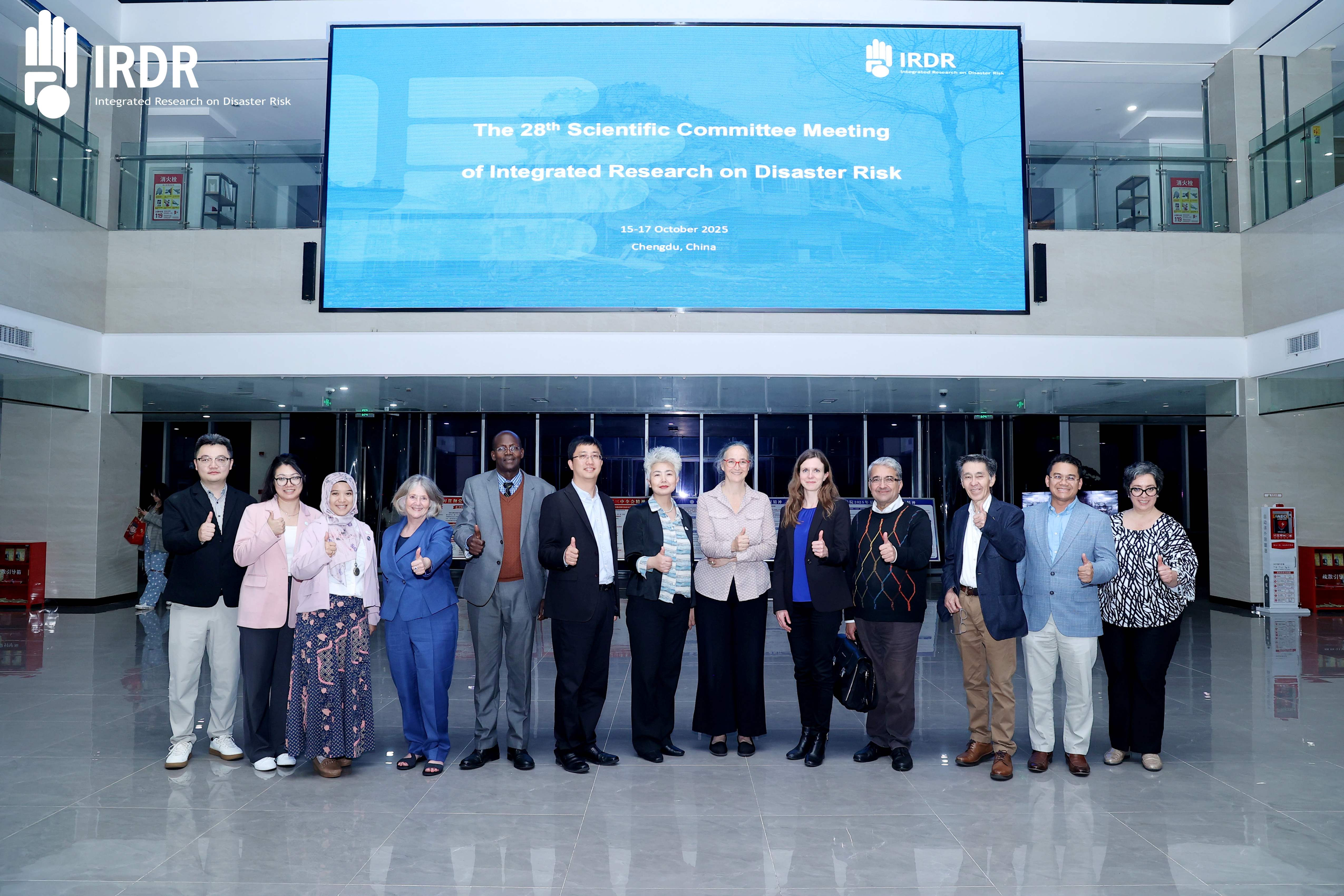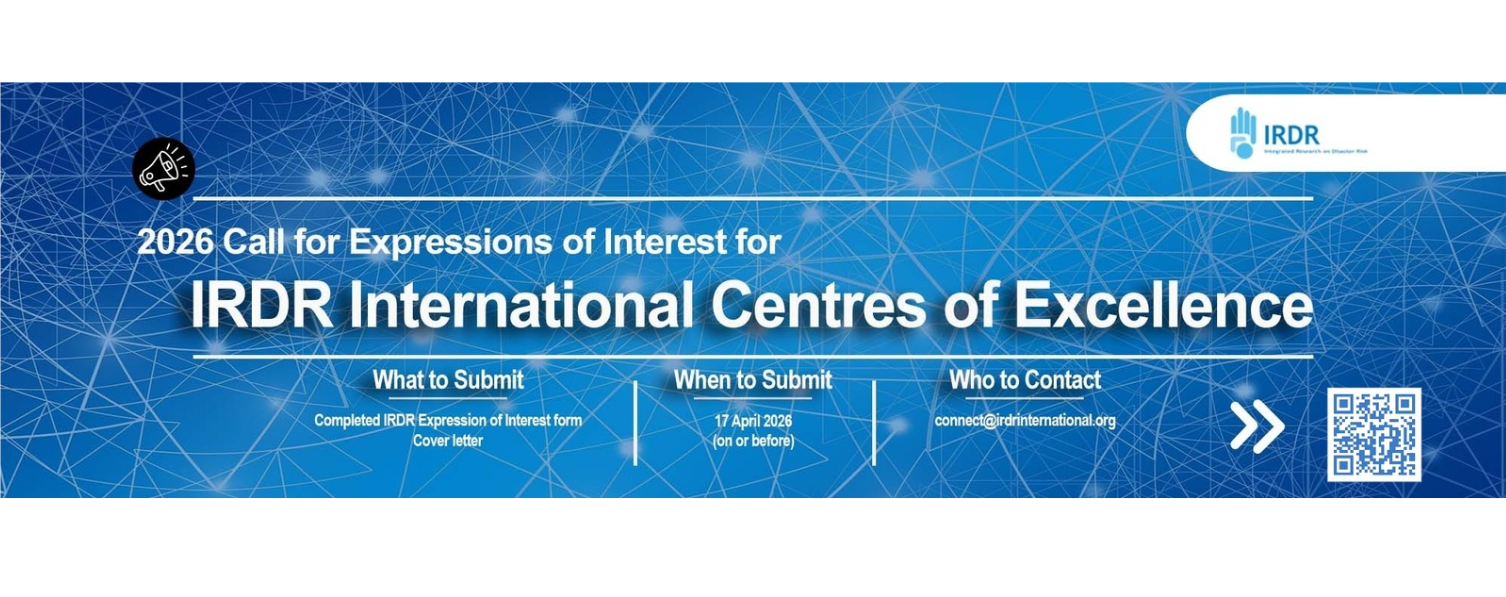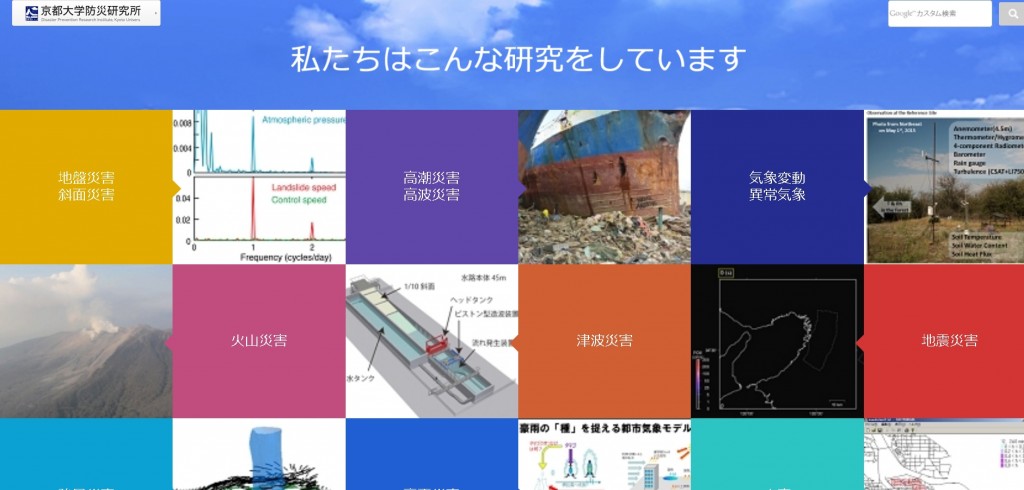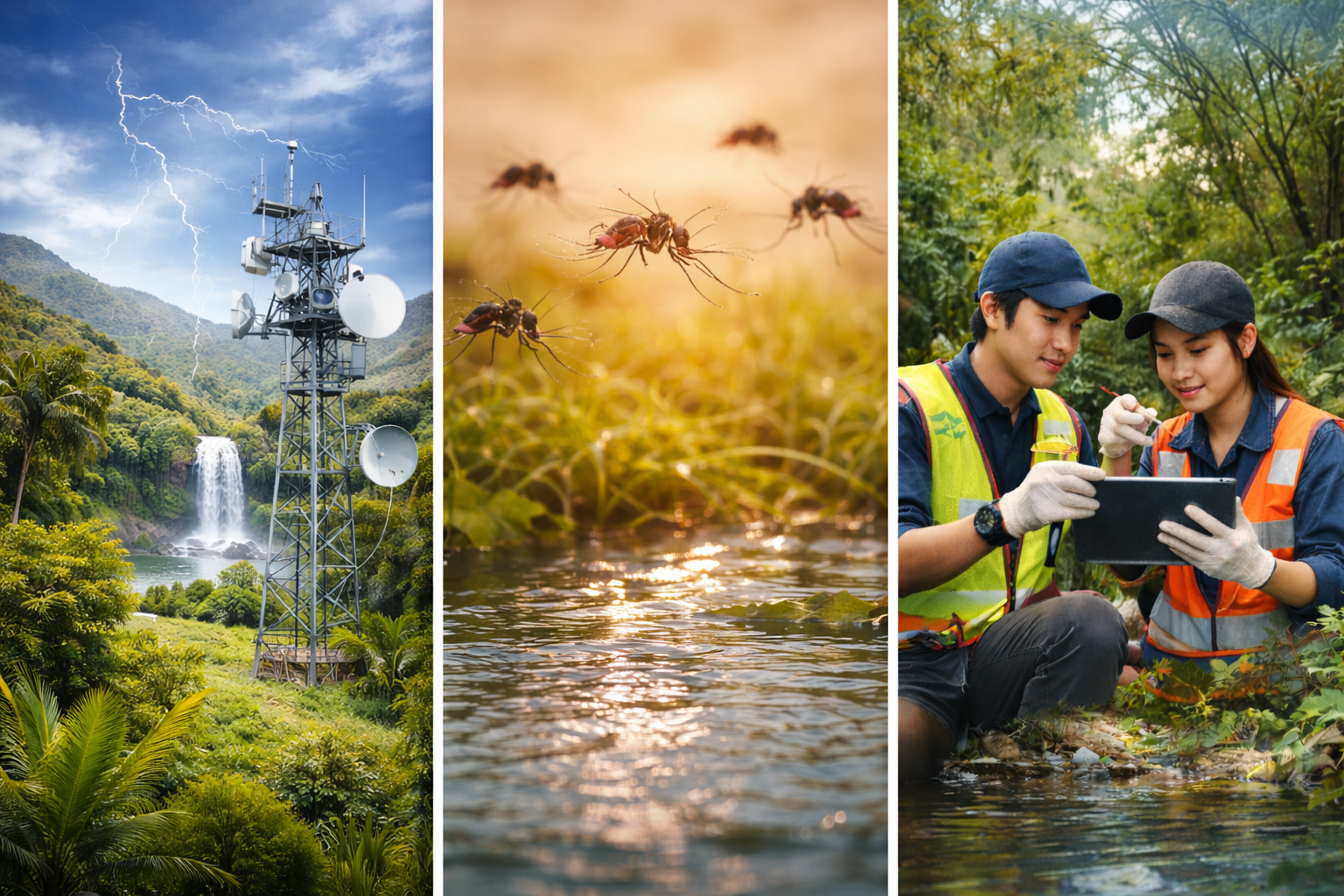
The Scientific Committee (SC) of the Integrated Research on Disaster Risk (IRDR) programme held its 28th meeting (SC28) in Chengdu, China during the period 15-17 October 2025. Organised by IRDR International Programme Office, with local support from the Institute of Mountain Hazards and Environment of the Chinese Academy of Sciences (IMHE CAS), this hybrid meeting was the second for the current cohort of SC members. During the meeting the SC members discussed a select number of interconnected matters that would impact the future involvement of the programme into the wider 2030 agendas, especially as it relates to the acceleration of the Sendai Framework.
In the opening remarks and key messages from co-sponsors, donor and host, it was emphasized that IRDR should identify the entry points available for its greater involvement on the global DRR platform; and to insert the programme into different types of science-policy engagements to become strategically involved in setting the post 2030 agenda.
The Committee acknowledged that the programme was under-represented in Africa, the Caribbean, and the Latin American regions, with very strong representation in Asia. The Committee discussed strategies to address this under-representation including implementing sensitisation efforts to increase the awareness of IRDR within each region’s respective scientific communities.
The meeting also facilitated constructive dialogue on research priorities and explored potential scientific outputs, positioning IRDR to meaningfully advance risk science and strengthen the science-policy interface.
The SC28 closed with the SC members recommitting themselves to the IRDR Action Plan, 2025-2027, and their respective roles in propelling the programme forward, and the overall agreement that IRDR must play an integral role in accelerating the implementation of the 2030 Sendai Framework.
IRDR is an international scientific research programme that aims to usher in an inclusive, safe and sustainable world by promoting a better understanding of disaster risk and the effective use of risk science in decision-making. Begun in 2010, the programme is now in its second phase, which will last for 10 years, starting from 2022 and ending in 2031, with a review in the fifth year. This will take IRDR through the end of the implementation of the Sendai Framework and other related United Nations 2030 Agreements.





